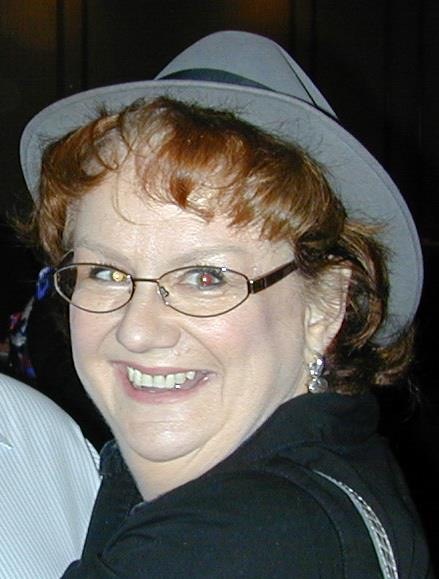By Dee Longfellow
Editor
 The last time this happened… a visit back to 1856
The last time this happened… a visit back to 1856
So much has been said about the events in Washington, DC last week and it’s turned the world topsy-turvy. We like to have our newspaper feature local news almost exclusively and yet, it’s hard not to acknowledge last week when a crowd of miscreants stormed into the U.S. Capitol and turned it into a battleground rather than a center of democracy.
Instead of rehashing last week, let’s go back 164+ years to the LAST time there was an attack – an actual physical attack – on the floor of the U.S. Senate. It takes us back to the days of Henry Wadsworth Longfellow*(see below).
Sen. Charles Sumner of Massachusetts was one my Uncle Henry Wadsworth Longfellow’s best friends. Both were staunch abolitionists. Uncle Henry wrote a series he called his “Slave Poems” that spoke to the plight of “the man who is not free.”
In 1856, the U.S. was still developing west and welcoming new territories to the union. Laws or agreements governed that process and, well, some were better than others. One of the most contentious was the Kansas-Nebraska Act. As Kansas and Nebraska become territories, Washington legislators made the decision that, once settled, the residents could vote and decide for themselves whether to be a free state or a slave state. That led to a rush of people – on both sides of the argument – moving out to those territories so they could vote for their respective side.
On May 19, 1856, Sen. Charles Sumner gave a speech fiercely criticizing the Kansas-Nebraska Act and all slaveholders, including some related to then-U.S. Representative Preston Brooks, a pro-slavery Democrat from South Carolina. Brooks and others were outraged by the speech.
Two days later on May 22, toward the end of the day, U. S. Representative Brooks with two senators at his side entered the Senate floor. They waited for the galleries to clear, assuring that there were no ladies present to witness what Brooks intended to do. He approached Sumner’s desk, stood before him and spoke in a low voice.
“Mr. Sumner, I have read your speech twice over carefully. It is a libel on South Carolina.”
Sumner tried to stand up but before he could get to his feet, Brooks struck him severely on the head, using a thick walking cane with a gold knob on top. Sumner was knocked to the floor and was trapped under his heavy desk, which was bolted to the floor. The force of the blows caused blood to pour over his head and into his eyes, rendering Sumner blind.
“I no longer saw my assailant, nor any other person or object in the room,” Sumner recalled later. “What I did afterwards was done almost unconsciously, acting under the instincts of self-defense.”
When he was finally able to free himself, Sumner staggered up the aisle, arms outstretched, vainly attempting to defend himself. But Brooks continued to beat him across the head, face and shoulders. Even when the cane broke, Brooks did not let up, continuing to strike Sumner with the piece that had the gold knob.
Finally, Sumner stumbled and collapsed unconscious on the floor. Several other Senators and Representatives attempted to help Sumner, but were blocked by Brooks and his own supporters, including Laurence M. Keitt, the other representative from South Carolina. Senator John J. Crittenden, a Republican from Kentucky, pleaded with Brooks not to kill Sumner and he eventually relented.
On May 24, 1856, Uncle Henry wrote the following to his friend:
“Sumner:
“I have no words to write you about this savage atrocity, only enough to express our sorrow and sympathy for yourself. I have been in great distress here. Yesterday morning [John] Owen came to tell me of this great feat of arms of the Southern Chivalry; he was absolutely sobbing and crying. …
“A brave and noble speech you made; never to die out of the memories of men!
“Yours, HWL”
Then on May 28, he wrote the following:
“I have just been reading again your speech. It is the greatest voice, on the greatest subject, that has been uttered since we became a nation. No matter for insults, — we feel them with you; no matter for wounds, — we also bleed in them! You have torn the mask off the faces of traitors; and at last, the spirit of the North is aroused.”
*Crash course for newcomers:
I really am an heir, HWL was an uncle a few generations back and there are papers in my lockbox to prove it. I have studied him extensively and own books not only of poetry but also his letters, journals and diaries. Yes, Henry was an uncle; we are direct descendants of his brother Stephen, who died at the age of 45 of alcoholism!
Here’s something cool…
When researching the details for this column, there was a youTube video called “The Caning of Charles Sumner explained,” on the channel Mr. Beat. If you watch the montage of photos, at minute 6:01, Sumner is seated across a table from another man – and it’s HWL! You may recognize his big bushy beard. How cool is that?


